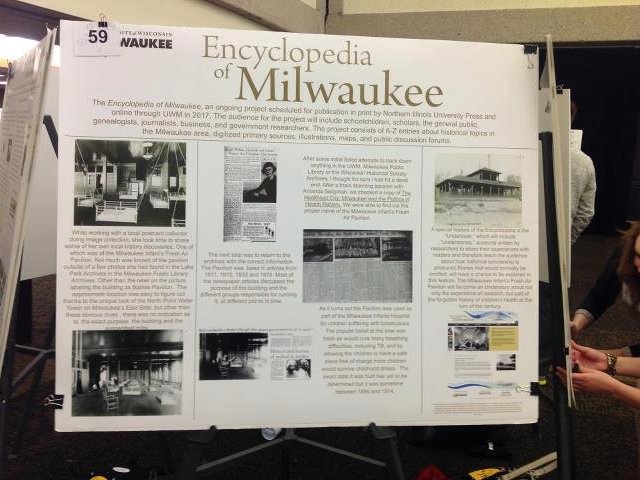Just when we were all fairly certain the internet had killed the encyclopedia, a resurgence of the large, almost-forgotten resource books are making a comeback of sorts.
Multiple cities including Los Angeles, New York City, Chicago, Louisville, Indianapolis and Cleveland have created encyclopedias – both print and online versions – and soon Milwaukee will have one, too.
No, it’s not called Mili-pedia.
"The Encylopedia of Milwaukee" will provide comprehensive coverage of the history of the Milwaukee metropolitan area which includes Milwaukee, Waukesha, Ozaukee and Washington counties.
The project began in 2008 and will be published in print as a coffee table book by Northern Illinois University Press and online by the University of Wisconsin-Milwaukee in 2017.
"Content will range from arts to culture to people to religion to media to nature to business," says co-editor Dr. Amanda Seligman. "We’re building a civic institution."
The lead editors of the project are Seligman and Dr. Margo Anderson of the University of Wisconsin-Milwaukee’s history department. Anderson is also the leading historian for the United States Census.
Marquette’s Dr. Thomas Jablonsky and Dr. James Marten serve as senior editors. Local historian John Gurda will assist, too, along with graduate students, writers and IT professionals.
The purpose of the encyclopedia is to make Milwaukee’s past accessible to the masses, teach students to locate and critically assess historical sources, provide authoritative information and create a foundational statement of what is known about Milwaukee’s past.
The encyclopedia will be accessed by students, educators, journalists, genealogists, artists, business owners, government workers, human resource recruiters, perspective visitors / travelers and anyone interested in Milwaukee’s history.
The cost of the project is $2 million, of which $1.3 million has already been raised thanks to a $250,000 grant from the National Endowment for the Humanities, a $50,000 grant from the Greater Milwaukee Foundation and contributions from several other organizations.
The print version will run about a million words in 740 entries across 1,000 pages. It will be searchable by topic and entries will range from short and specific to longer essays.
Examples of possible entries include "Brewing," "Gertie the Duck," "Hmong" and "Hank Aaron."
If the print encyclopedia sells well, there will be a second, updated printing.
Although the online version of the project is easier to expand, the importance of having the compatible print version is important for those using it for research.
"It is a starting point with credible and reliable footnotes and a bibliography," says Seligman. "People will know it contains good information that will help them get where they need to go."
The Encyclopedia of Milwaukee will launch a teaser web site this fall, but currently has a Facebook page with almost 300 likes. Recently, the page administrator posed the question, "What is the first thing you will look up in the encyclopedia?" Responses ranged from the history of Usinger’s Famous Sausage to wastewater disposal to the origins of different cultural groups.
Seligman worked on a similar project in Chicago while attending graduate school at Northwestern University. She is particularly excited about the Milwaukee version of this book.
"Milwaukeeans really love history," she says. "The encyclopedia of Milwaukee will allow them to explore the past on their own terms."
Molly Snyder started writing and publishing her work at the age 10, when her community newspaper printed her poem, "The Unicorn.” Since then, she's expanded beyond the subject of mythical creatures and written in many different mediums but, nearest and dearest to her heart, thousands of articles for OnMilwaukee.
Molly is a regular contributor to FOX6 News and numerous radio stations as well as the co-host of "Dandelions: A Podcast For Women.” She's received five Milwaukee Press Club Awards, served as the Pfister Narrator and is the Wisconsin State Fair’s Celebrity Cream Puff Eating Champion of 2019.







